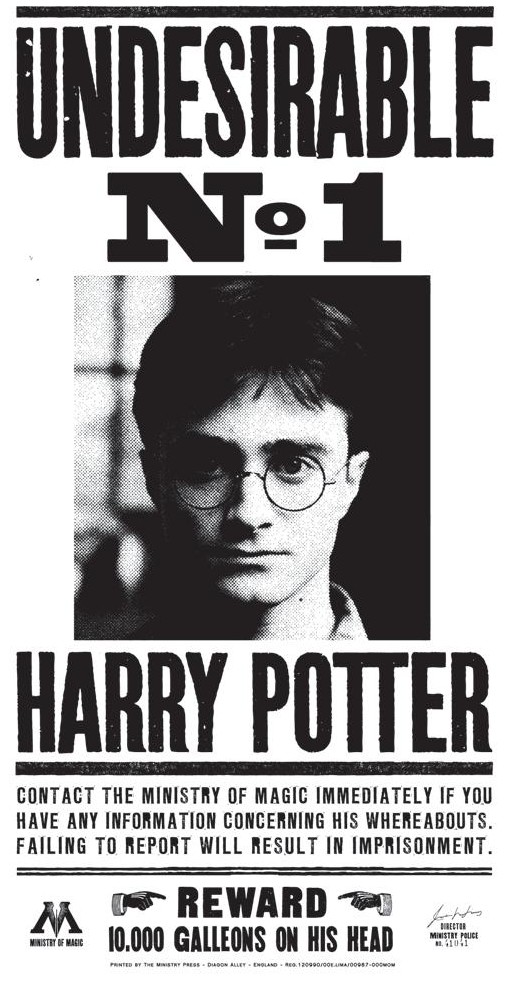‘Harry Potter’ and How We Learn To Discern
Whether you enjoy ‘Harry Potter,’ or believe it’s dangerous witchcraft, or try to find Christian parallels in the stories … 14 questions to ask.
E. Stephen Burnett on Sep 24, 2011 ·
Share a reply
originally published at Speculative Faith
(The following is adapted from the complete ‘Harry Potter’ and the Issues Beyond Fiction series. For those who’d like that in condensed form, this is the Quick-Quotes version.
To see expansions on each point, read the complete series.)
Whether you enjoy Harry Potter, or you believe it’s full of witchcraft and dangerous, or if you are trying too hard to cram Christian parallels into the stories … some questions to ask:
1. Do we define “witchcraft” according to the Bible or according to pagans, seeing made-up “magic” as the same insidious practices the Bible condemns?
- If a pagan says “that’s real magic, my stuff,” let’s not automatically buy his belief. We know the Devil likes to exaggerate his powers and make us think God isn’t sovereign.
- Apart from the issue of impressionable children, or whether Potter contains actual paganism, some Christians are able to handle exposure even to real pagan beliefs.
2. Might we buy into the worldly notion that sin comes from Things, not hearts?
- Jesus is clear in Mark 7 and elsewhere that hearts, not Things, give rise to sin. If we forget that, we buy the Pelagian notion that we’re “neutral” and others are to blame.
- As with Things like meat sacrificed to idols, alcohol, or TV, or oldie songs, we should recall that all of us have varying levels of temptations toward making a Thing an idol.
3. In our zeal to warn about possible harms, do we commit equal sins of truth-carelessness or overt deception, even against perceived (or real) bad guys?
- Many critics of Harry Potter and similar stories feel it’s okay to fudge the truth about the stories’ content, such as claiming the books actually glorify the bad guys’ evils.
- As Christians, we must tell the truth and not exaggerate. Otherwise we only commit other sins in reaction even to real wrong things that we need to warn others about.
4. Could Christians overdo their “discernment” views based only on reactions?
- We may hear a lot about “Christians don’t discern enough.” That’s true, but the real solution is the Gospel. It will lead us naturally to want to discern what honors Him.
- If we only tell people what media, songs, or stories to avoid, we leave open the door for Gnosticism and other beliefs that reject joy in favor of duty-driven “spirituality.”
5. Do we assume “that looks bad or wicked to me” is the same as discernment?
- Some may look not to Scripture but to appearances to figure out what to avoid. But “abstain from all appearance of evil” (1 Thess. 5:22) means avoid actual evil practice.
- If we applied this “discernment” consistently, we’d not only judge with un-Biblical judgment, but would have to declare some parts of the Bible itself to “appear” evil.
6. Do we enjoy Christian tales whose “worlds” don’t include clear Christ-figures or best-behaving characters, then have higher expectations for secular stories?
- Defending The Chronicles of Narnia or The Lord of the Rings because they’re set in “other worlds” with different rules, or Christ-figures, should apply to all other stories.
- Many of Jesus’ own parables include tales about morally imperfect people, and don’t have obvious Christ-figures. We do not need to insist on higher standards than that.
7. Are we wary of the Word’s commands not to base our lives on made-up rules?
- Paul in Colossians 2 (and elsewhere) insists that Christians have been set free from bondage to sin, and need not be tied up by un-Biblical rules that don’t work anyway.
- While the flesh and the Devil are still dangerous, Christians may forget they aren’t meant to live for rules, but for Christ, Whose Holy Spirit changes us from the inside.
8. Might we “outsource” our discernment to others, believing only they are wise enough to do it for us, while not growing in our personal discernment wisdom?
- Media discernment ministries can be helpful! But some Christians act as if the Bible is not enough; they claim we also need them to stand between us and evil Things.
- This is a kind of “media shamanism.” But if those Christians can be exposed to the evil Thing, they would better encourage others’ individual growth and discernment.
9. Do we try to avoid bad Things like imaginary “magic,” while practicing our own favorite subtle mysticism methods, supposedly to get control or avoid sin?
- Treating objects as the real source of evil can also lead to mystical thinking: shun the Thing that contains remnant evil and you’ll be fine. This is actual practice of “magic”!
- Being wary only of obvious “magic,” we may neglect to avoid other mystical practices: seeking signs or personal prophecies, relying on “nudges” for discernment, and more.
10. Do we recall that Scripture itself shows saints like Daniel and Paul serving God in their holy living, even while knowing and studying real pagan religions?
- “Engaging culture” is often abused to excuse worldliness. Yet the Bible does not say “find what the world does, then do opposite.” The world may or may not reflect truth.
- In Daniel 1 we read that Daniel also studied actual pagan materials, with God’s help! Paul also took a truth, wrongly applied in a Greek poem about Zeus, to be about God.
11. Is “someone used it to sin, so that makes it wrong for all” a Biblical reason?
- This bypasses Scripture about the “meat sacrificed to idols” debate: love your brother and don’t abuse your freedom, but also don’t be constrained by un-Biblical rules.
- To practice this consistently, we would need to avoid anything that someone abuses to sin: any movies, or technology, or church buildings, or songs, or the Bible itself.
12. Even with good intentions, might we base our reactions to worldly things only on the reactions of “weaker brothers,” who do need love but also growth?
- Example: some reject drum rhythms because they reminded newly converted pagans of their pasts. But drum rhythms are not evil, and such new converts are not legalists.
- Based on Romans 14 and 1 Corinthians 8-11:1, we do need to be sensitive to others’ legitimate “stumbling blocks.” Yet we can also encourage them to grow in strength.
13. Are we sure we’re not basing views on our own dislikes (or simple lack of enjoyment) for some stories, and expecting other Christians to think the same?
- Not every Christian loves fiction; even fewer enjoy or see the point of fantasy. That could make it too easy to say: “what’s the big deal; why not just avoid it to be safe?”.
- Many people testify how God has helped them see His truths from His all-sufficient Word echoed in secondary ways: art, music, nature, and even secular fantasy stories.
14. Do we recall that true Christians may hold different views of discerning things, and yet avoid worldliness and instead grow in truth and love for Christ?
- To contrast one’s personal discernment rules only with examples of those who have become worldly, could imply that discernment is easy or will always looks the same.
- Some things are always evil. Others are trickier! But based on our own callings, gifts, strengths and weaknesses, some discernment is custom-made for each Christian.






























Share your fantastical thoughts.